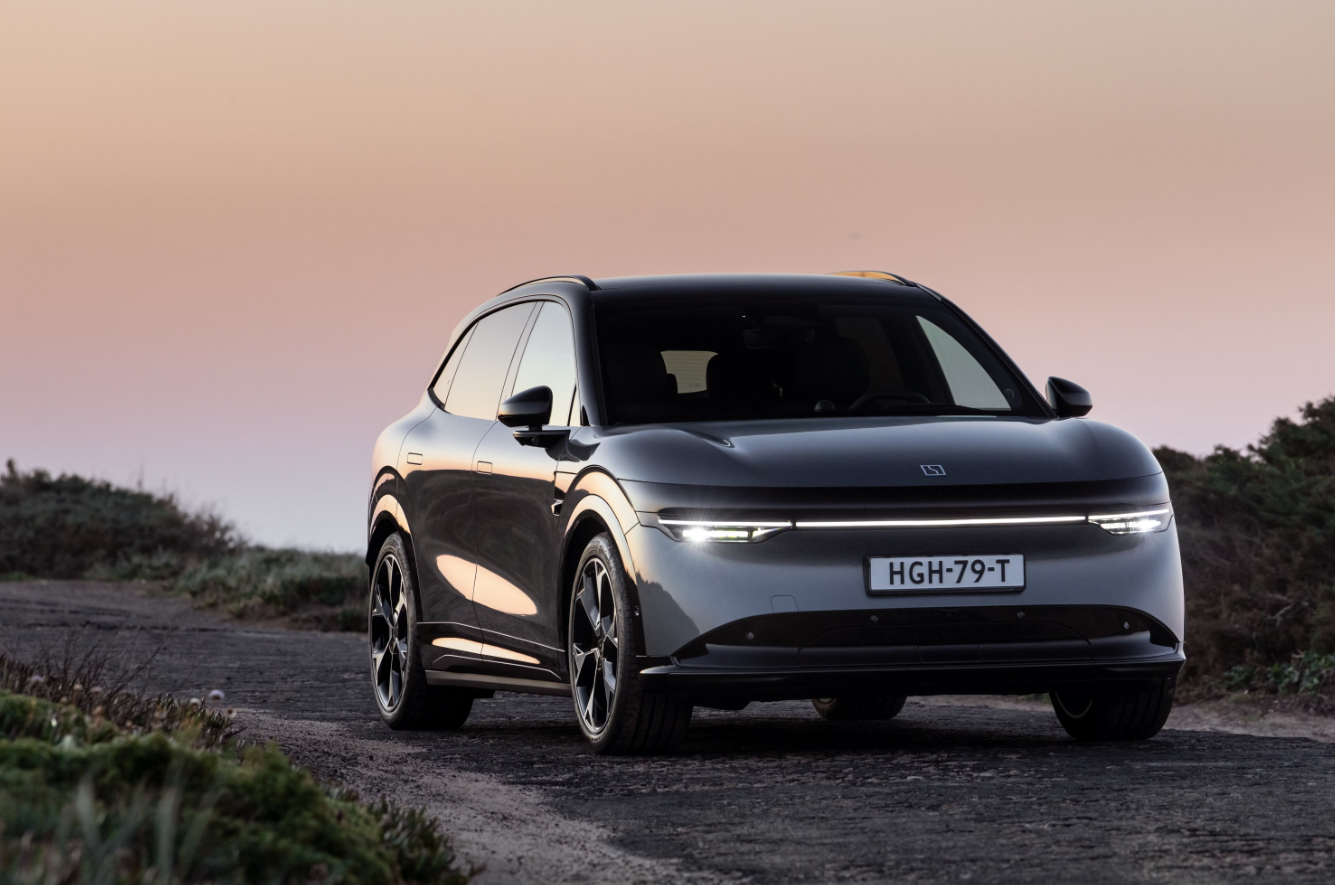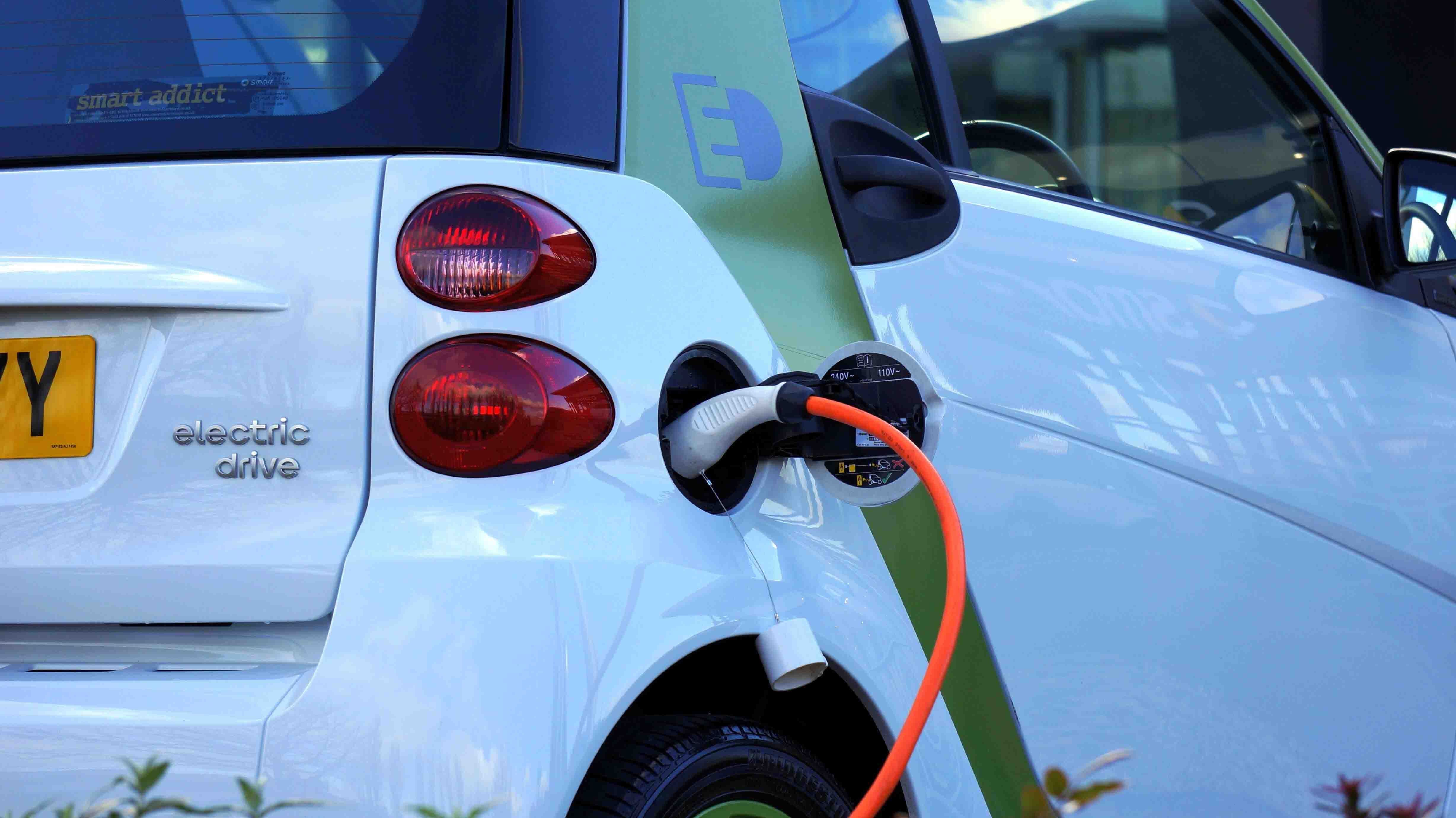In recent years, as China's domestic automobile market approaches saturation, more Chinese automakers have turned their attention abroad in search of new growth opportunities. Yet with opportunity comes challenge, and Chinese brands face a range of hurdles when competing overseas.
"Going global is never an overnight success—it is a long-term, sustained process. Senior leadership must have a global perspective and, while fully understanding the local difficulties and risks, also maintain strategic patience. Only under these conditions can overseas operations succeed," said Mr. William Huang, EU CIO of Geely Auto Group and Zeekr Group, in an interview with Gasgoo during the IAA Mobility 2025 in Munich.
As a luxury smart EV (electric vehicle) brand from China, Zeekr officially launched its European strategy in April 2023, marking the start of its global expansion. At the time, the company announced plans to introduce a direct-sales model in Europe, complete its first deliveries in the Netherlands and Sweden within the year, and expand to most of Western Europe by 2026. Meanwhile, it also set a bold target: to become a leading EV brand in Europe by 2030.
Now, more than two years later, how has Zeekr's European business progressed? What challenges has the company encountered in its overseas journey, and how has it addressed them? What lessons can other Chinese automakers draw from Zeekr's experience? The following interview provides insights.
Expanding in Europe with Intelligentization at Core
Mr. Huang said that since Zeekr entered the European market, the IT team under his leadership has been tasked with fully supporting the entire process of vehicle order fulfillment and aftersales operations.
From order placement to final delivery, every step depends on systematic software support to enable efficient collaboration. Zeekr Europe's IT team integrates Zeekr's mature product operation experience in China with the specific needs of local markets, building and refining a digital marketing and service system that covers the full chain of sales, delivery, and aftersales.
At the same time, the team continues to focus on localized operations and long-term maintenance of its products, constantly improving the end-user experience. These efforts underpin Zeekr's business expansion and new store openings in Europe. "Our core mission is to comprehensively enhance end-to-end delivery efficiency, providing strong and reliable system support and service assurance for Zeekr's sustainable growth in Europe," said Mr. Huang.
Beyond the digital marketing & service systems, Zeekr also embeds localization into product design from the outset. Its design team in Gothenburg plays an active role in early styling and design customization. On the technical side, Zeekr adheres to a platform-based vehicle development philosophy. Almost all of its models are built on globally co-developed platforms that not only take local adaptation needs into full account, but also undergo extensive validation.
For instance, the newly launched Zeekr 7X has been warmly received by European consumers. The model excels over many competitors in power performance, exterior design, charging efficiency, driving experience, and intelligent features.

Zeekr 7X; photo credit: Zeekr
In Mr. Huang's view, European consumers may adopt new technologies and products at a slightly slower pace than in China, but advanced driver-assistance systems and high-quality intelligent experiences are still highly appealing. Meanwhile, traditional OEMs in the region have been slower in advancing new technologies, leaving consumers with few chances to access such innovative products.
"Zeekr has seized this market opportunity by focusing on product experience and investing heavily in intelligent features, creating a differentiated competitive edge," he said. This approach has become the company's key strategy for Europe expansion, namely, "Expanding in Europe with intelligence at the core."
On the channel side, since May this year, Zeekr has been actively opening new stores across multiple European countries. With these preparations in place, the Zeekr 7X has already gone on sale in the Netherlands, Norway, and Sweden, where it is seeing relatively fast-growing sales.
Addressing Challenges Together with Global Partners
Opportunities often come hand in hand with challenges. Mr. Huang acknowledged that in the course of expanding and deepening Zeekr's presence in the European market, the company's digital strategy has faced multiple challenges, with compliance issues at the forefront.
It is well known within the industry that Europe enforces stringent laws and regulations. Among them is the General Data Protection Regulation (GDPR), enacted in 2018, widely regarded as the strictest-ever data protection law in European history. It imposes rigorous requirements on the collection, processing, and transfer of data for autonomous driving and driver-assistance initiatives. In addition, the General Safety Regulation (GSR) mandates that, as of July 7, 2024, all new vehicles registered must comply with its compulsory type-approval requirements.
In response, Zeekr has made "compliance and safety first" a fundamental pillar of its digital strategy. All service processes strictly adhere to local laws and regulations. A crucial part of this effort has been the professional compliance solutions provided by Amazon Web Services. With the support of its team, Zeekr has established a comprehensive system for data protection and security management. This framework not only mitigates compliance risks but also safeguards user privacy, laying the foundation for smooth business operations.
When it comes to adapting to local conditions, Zeekr faced the challenge that many of its systems were originally developed for the Chinese environment. Entering Europe required deep integration with local services and partners. To address this, Zeekr has formulated the core strategy of "a global architecture with localized integration," emphasizing collaboration and co-development with local stakeholders.
As a global company itself, Amazon Web Services has provided a stable and flexible cloud infrastructure, enabling Zeekr to successfully migrate and stably operate its core business systems in Europe, thereby achieving efficient connectivity with local services.
In terms of continuously improving operational efficiency and optimizing costs, Zeekr has worked closely with Amazon Web Services' technical support team to refine its cloud architecture, achieving automated operations and more efficient resource utilization. For example, both Zeekr's order management system and its connected vehicle services run on Amazon Web Services' platform—applications that demand high levels of system stability, connection reliability, and response speed. In this regard, Amazon Web Services has offered dependable support in troubleshooting, real-time response, and professional services, helping Zeekr improve operational efficiency and control costs.
Summing up this cooperation, Mr. Huang described Amazon Web Services as a "reliable, flexible, and efficient" partner. He noted that the partnership has already extended beyond foundational cloud services into emerging areas such as artificial intelligence (AI).
According to Mr. Huang, Geely Auto Group is undergoing a comprehensive transformation powered by AI, and Zeekr's digitalization will advance further toward intelligence, permeating every stage of its workflows to enhance both operational and product efficiency. Naturally, all of this must be conducted on the basis of compliance. Building on that foundation, large AI models will empower Zeekr's operations across multiple areas.
Amazon Web Services, for its part, has developed a wide range of frameworks, tools, and software. Leveraging these solutions, and aligning them with Zeekr's specific business challenges, creates significant opportunities for new collaborations between the two companies in AI.
Looking ahead, Zeekr anticipates deepening its strategic cooperation with Amazon Web Services and the broader Amazon network across multiple areas—including e-commerce, advertising, and logistics. "With the close collaboration between our teams and the continued advancement of strategic leader discussions, we will be able to identify more opportunities for innovation, jointly creating benchmark projects and products that drive Zeekr's digital progress not only in Europe but also in global markets," said Mr. Huang.
How to Avoid Pitfalls in Global Expansion
In the first half of this year, China exported 3.083 million vehicles, a year-on-year increase of 10.4%. Among them, new energy vehicle (NEV) exports reached 1.06 million units, surging 75.2% from a year earlier, accounting for 34.4% of total vehicle exports.
Clearly, overseas expansion has become not only strategically essential but also a must-choose path for Chinese automakers.
For the growing number of companies venturing abroad, Mr. Huang shared valuable insights drawn from Zeekr's overseas experience, offering practical guidance for Chinese automakers navigating global markets.
At the product level, Mr. Huang emphasized the importance of identifying the real pain points of local consumers and carefully analyzing local regulations and standards. For example, European vehicle definitions differ significantly from those in China, and such distinctions must be accounted for as early as the product definition and planning stage.
Only by integrating these factors into the entire chain—from vehicle design and manufacturing to delivery and aftersales—can automakers ensure their products are well adapted to overseas markets. As Mr. Huang put it, the key lies in "deeply understanding the market, knowing your consumers, and clarifying your positioning."
Regarding partnership building, Mr. Huang noted that the business environment abroad differs greatly from China's, thus choosing the right global partners with proven experience can help Chinese automakers avoid unnecessary detours by leveraging their accumulated expertise—just as Zeekr did in partnering with Amazon Web Services. Conversely, if companies or partners lack global vision or fail to adhere to compliance principles, they are likely to encounter serious and recurring issues.
When discussing overseas AI-driven business, Mr. Huang stressed that true intelligence can only be achieved on the back of a strong platform and sufficient data accumulation.
"If these foundations are not in place, any attempt to develop intelligent operations will face enormous challenges—essentially making it unworkable," he explained. This is why overseas expansion demands both strategic patience and long-term vision.
Mr. Huang also made a strong appeal for Chinese enterprises to move away from short-sighted price wars and instead compete globally by building technological influence, quality reputation, and brand value.
"Going abroad as a Chinese company is not just about representing one enterprise—it represents China's collective entry into the international market. Every company leader should carry this responsibility," he said.
Zeekr, he added, will remain firm on its strategic positioning and pursue AI-driven innovation and high-quality products to work hand in hand with local partners and markets for shared success.
Looking ahead, Mr. Huang made Zeekr's objectives clear: "Within three to five years, our goal is to become the most advanced and trusted brand in European consumers' minds when it comes to intelligent mobility."
Finally, Mr. Huang emphasized that the core value of Chinese companies going abroad lies in bringing the best of China's technologies, products, and user experiences to Europe and beyond. The ultimate goal, he said, is to demonstrate the technological capabilities and influence of Chinese automakers to consumers worldwide, and allow China manufacturing to take the lead globally.



